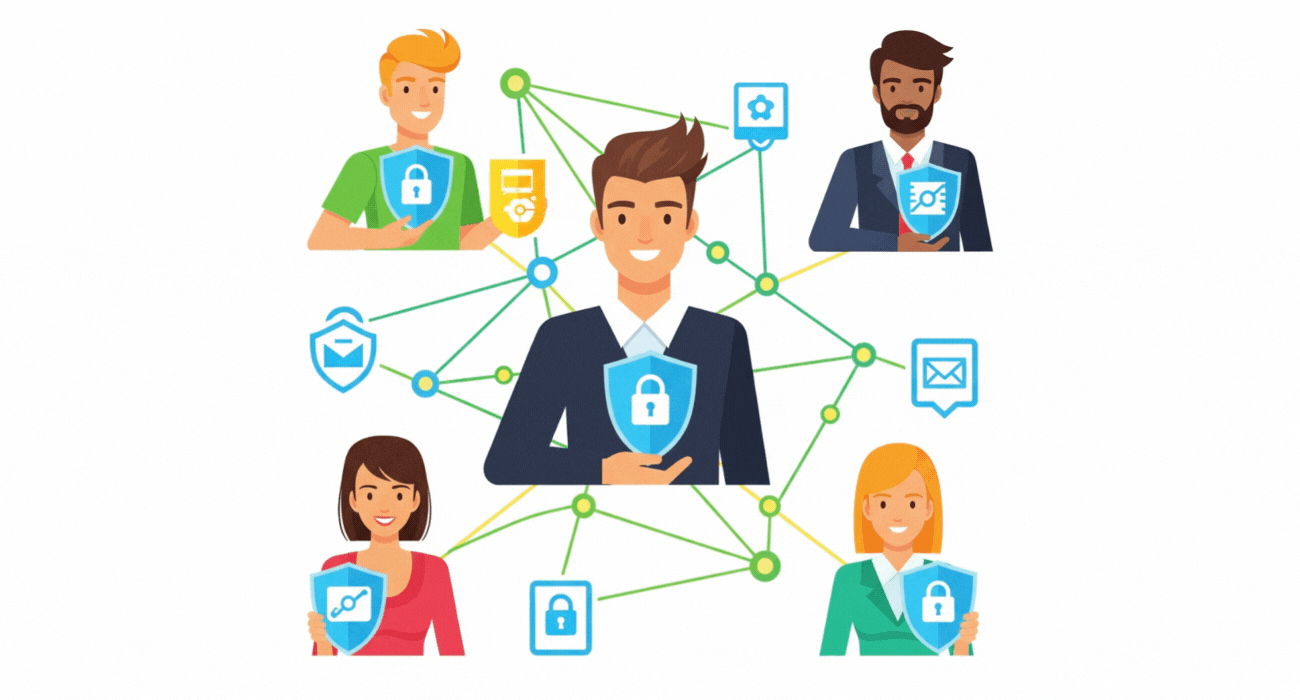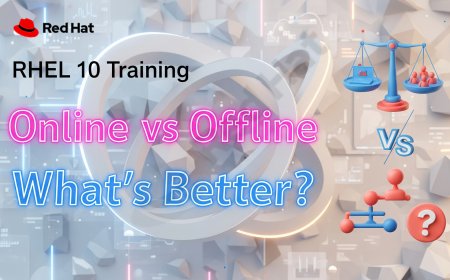Why Cybersecurity Awareness Is Everyone’s Responsibility
In today’s digital world, where we rely on technology for everything from banking to socializing, cybersecurity is no longer just a buzzword—it’s a necessity. Imagine waking up to find your bank account drained, your personal photos leaked, or your work files locked by ransomware. These scenarios aren’t just hypothetical; they happen every day. Cybersecurity isn’t just the job of IT professionals or tech experts—it’s a shared responsibility that affects everyone, from employees to students, parents to retirees. This blog explores why cybersecurity awareness matters, how it impacts our daily lives, and what we can all do to stay safe online.

Table of Contents
- What Is Cybersecurity Awareness?
- Why Everyone Needs to Care
- Common Cyber Threats and How They Affect You
- The Role of Individuals in Cybersecurity
- Cybersecurity in the Workplace
- Practical Steps to Stay Safe Online
- Conclusion
- Frequently Asked Questions (FAQs)
What Is Cybersecurity Awareness?
Cybersecurity awareness is about understanding the risks of using the internet and technology, and knowing how to protect yourself, your data, and your devices. It’s not about becoming a tech genius—it’s about being informed enough to make smart choices. For example, recognizing a suspicious email or using a strong password can make a big difference. Cybersecurity awareness is like learning road safety: just as you look both ways before crossing the street, you should take precautions before clicking a link or sharing personal information online.
Think of it as digital common sense. It’s about knowing what threats exist, how they work, and what you can do to avoid them. From phishing scams to malware, the digital world is full of traps, and awareness is your first line of defense.
Why Everyone Needs to Care
You might think, “I’m not a target—I’m just an average person.” But cybercriminals don’t discriminate. They target anyone who’s vulnerable, whether it’s a CEO, a student, or a grandparent. Here’s why cybersecurity awareness is everyone’s responsibility:
- Everyone Uses Technology: From smartphones to laptops, we’re all connected. Each device is a potential entry point for hackers.
- Data Is Valuable: Your personal information—like your name, address, or credit card details—can be sold on the dark web or used to steal your identity.
- Small Actions Have Big Impacts: One careless click can compromise an entire organization’s network or your family’s financial security.
- It’s Not Just About You: If your device is hacked, it could be used to attack others, like your friends, family, or coworkers.
By staying aware, you protect not only yourself but also those around you. Cybersecurity is a team effort, and every person plays a role.
Common Cyber Threats and How They Affect You
Understanding the threats is the first step to staying safe. Below is a table summarizing some common cyber threats, their impacts, and how awareness can help.
| Threat | Description | Impact | How Awareness Helps |
|---|---|---|---|
| Phishing | Emails or messages pretending to be from trusted sources to trick you into sharing sensitive information. | Stolen passwords, financial loss, identity theft. | Recognizing suspicious emails and avoiding clicking unknown links. |
| Malware | Malicious software that can damage or steal data from your device. | Data loss, device damage, or ransomware demands. | Avoiding untrusted downloads and keeping software updated. |
| Social Engineering | Tricking people into revealing sensitive information through manipulation. | Unauthorized access to accounts or systems. | Being cautious about sharing personal details. |
| Weak Passwords | Simple or reused passwords that are easy to guess or crack. | Account takeovers and data breaches. | Using strong, unique passwords and a password manager. |
These threats show how a single mistake can lead to serious consequences. Awareness helps you spot red flags and take action before it’s too late.
The Role of Individuals in Cybersecurity
Every person has a part to play in keeping the digital world safe. Here’s how individuals contribute:
- Protecting Personal Data: By securing your accounts with strong passwords and two-factor authentication (2FA), you reduce the risk of your data being stolen.
- Staying Informed: Keeping up with the latest scams and threats helps you avoid falling victim to them.
- Reporting Suspicious Activity: If you spot a phishing email or a hacked account, reporting it can prevent further damage.
- Educating Others: Sharing what you learn with friends and family spreads awareness and strengthens the community.
Think of yourself as a gatekeeper. Your actions—big or small—help keep the digital gates secure for everyone.
Cybersecurity in the Workplace
In the workplace, cybersecurity awareness is even more critical. A single employee’s mistake can compromise an entire organization. For example, clicking a malicious link could install malware that spreads across a company’s network, costing millions in damages. Here’s why employees play a key role:
- Data Protection: Companies store sensitive information, like customer data or financial records, which hackers target.
- Compliance: Many industries have strict regulations about data security, and employees must follow them to avoid penalties.
- Remote Work Risks: With more people working from home, unsecured home networks can become entry points for hackers.
Employers can help by offering regular training, but employees must take responsibility for following best practices, like locking their computers when away or verifying the source of emails.
Practical Steps to Stay Safe Online
Now that you understand the importance of cybersecurity awareness, here are some practical steps you can take to protect yourself:
- Use Strong Passwords: Create passwords with at least 12 characters, mixing letters, numbers, and symbols. Use a password manager to keep track of them.
- Enable Two-Factor Authentication: 2FA adds an extra layer of security by requiring a second form of verification, like a text message code.
- Update Software Regularly: Keep your apps, operating system, and antivirus software up to date to patch security holes.
- Be Cautious with Emails: Don’t click links or download attachments from unknown or suspicious emails.
- Back Up Your Data: Regularly back up important files to an external drive or cloud service to protect against ransomware.
- Use Secure Networks: Avoid public Wi-Fi for sensitive tasks, or use a virtual private network (VPN) for added security.
- Learn to Spot Scams: Look for signs like poor grammar, urgent demands, or unfamiliar email addresses in messages.
These steps are simple but effective. Make them part of your routine, like brushing your teeth or locking your front door.
Conclusion
Cybersecurity awareness isn’t just for tech experts—it’s for everyone. From phishing scams to weak passwords, cyber threats can affect anyone, anywhere. By understanding the risks, staying informed, and taking simple precautions, you can protect yourself, your family, and your workplace. Cybersecurity is a shared responsibility, and every small action counts. Whether it’s using a strong password, reporting a suspicious email, or educating others, you’re helping build a safer digital world. Start today—because when it comes to cybersecurity, we’re all in this together.
Frequently Asked Questions (FAQs)
What is cybersecurity awareness?
It’s understanding the risks of using the internet and technology, and knowing how to protect your data and devices.
Why should I care about cybersecurity?
Everyone uses technology, and hackers target anyone with valuable data, like personal or financial information.
What is phishing?
Phishing is when cybercriminals send fake emails or messages pretending to be from trusted sources to steal your information.
How can I spot a phishing email?
Look for red flags like urgent language, unfamiliar senders, or suspicious links. Hover over links (don’t click) to check their destination.
What is malware?
Malware is malicious software that can harm your device, steal data, or lock your files for ransom.
How can I protect my devices from malware?
Keep software updated, avoid untrusted downloads, and use reputable antivirus software.
What is two-factor authentication (2FA)?
2FA requires a second form of verification, like a code sent to your phone, in addition to your password.
Why are strong passwords important?
Strong passwords are harder for hackers to guess or crack, protecting your accounts from unauthorized access.
What makes a password strong?
A strong password is at least 12 characters long and includes a mix of letters, numbers, and symbols.
Should I use the same password for multiple accounts?
No, using unique passwords for each account prevents a single breach from affecting all your accounts.
What is a password manager?
A password manager is a tool that securely stores and generates complex passwords for your accounts.
Is public Wi-Fi safe to use?
Public Wi-Fi can be risky. Use a VPN or avoid sensitive tasks like online banking when connected.
What is a VPN?
A virtual private network (VPN) encrypts your internet connection, making it harder for hackers to intercept your data.
Why should I back up my data?
Backups protect your files from ransomware or device failure, allowing you to recover important data.
How often should I update my software?
Check for updates regularly, at least monthly, or enable automatic updates for convenience.
What is social engineering?
Social engineering is when hackers manipulate people into sharing sensitive information or granting access.
Can my actions affect others’ cybersecurity?
Yes, a compromised device can be used to attack others, like sending phishing emails to your contacts.
How can I stay informed about cyber threats?
Follow reputable cybersecurity blogs, attend training, or subscribe to alerts from trusted organizations.
Why is cybersecurity important at work?
Employees can accidentally expose company data, leading to financial loss or legal issues.
What should I do if I suspect a cyberattack?
Report it immediately to your IT team or service provider, and avoid interacting with suspicious content.
What's Your Reaction?
 Like
0
Like
0
 Dislike
0
Dislike
0
 Love
0
Love
0
 Funny
0
Funny
0
 Angry
0
Angry
0
 Sad
0
Sad
0
 Wow
0
Wow
0















